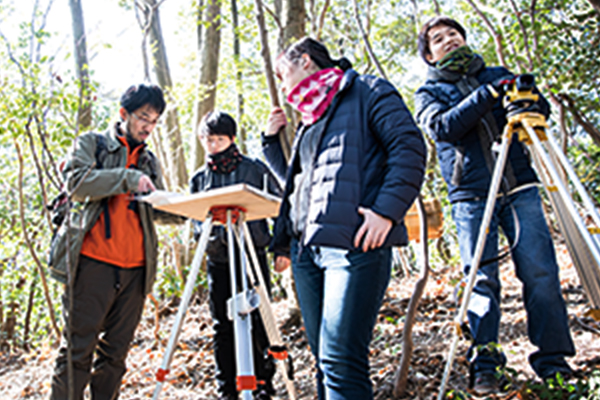
Our Fieldwork at an Eel Fishery Cooperative in Isshiki Town.
The question, "What is the fundamental difference between humans and animals?" will produce a variety of responses. In the Department of Anthropology and Philosophy, however, we might say that the answer lies in the presence or the absence of "culture." The cultural environment is an integral part of human life. While culture changes greatly with time, flourishing in forms that vary greatly from one region to the other, there are always fundamental features that have not altered through the ages. What is needed right now is a systematic study of the fact that humans cannot exist without creating culture. Such study should employ a broad historical perspective and multicultural approach, considering both the multiplicity and the commonality of culture. The problems we face today, such as racial conflict and destruction of the environment, are a product of human intervention and cannot be solved without taking culture into account. In the Department of Anthropology and Philosophy, the approach to human thought and action is largely based on the academic disciplines of philosophy, cultural anthropology and archaeology. Among faculties and departments that include "anthropology" and "culture" as part of their names, we stand out for our ability to address a broad range of interests, including fundamental questions about the nature of humanity and knowledge. Students interested in these issues are accommodated just as much as those who want to carry out their own research and verify matters in the field for themselves.

Features of the Department
- The Department addresses a broad spectrum of student interests, with courses in such diverse fields as philosophy, linguistics, methodology, cultural anthropology, archaeology, and cultural history.
- The curriculum offers a range of specialized courses in each field as well as interdisciplinary courses in order to allow students to cultivate both a broad basic knowledge and a high level of specialized knowledge.
- Practical courses involving fieldwork allow students to study manifestations of both contemporary and past cultures.
